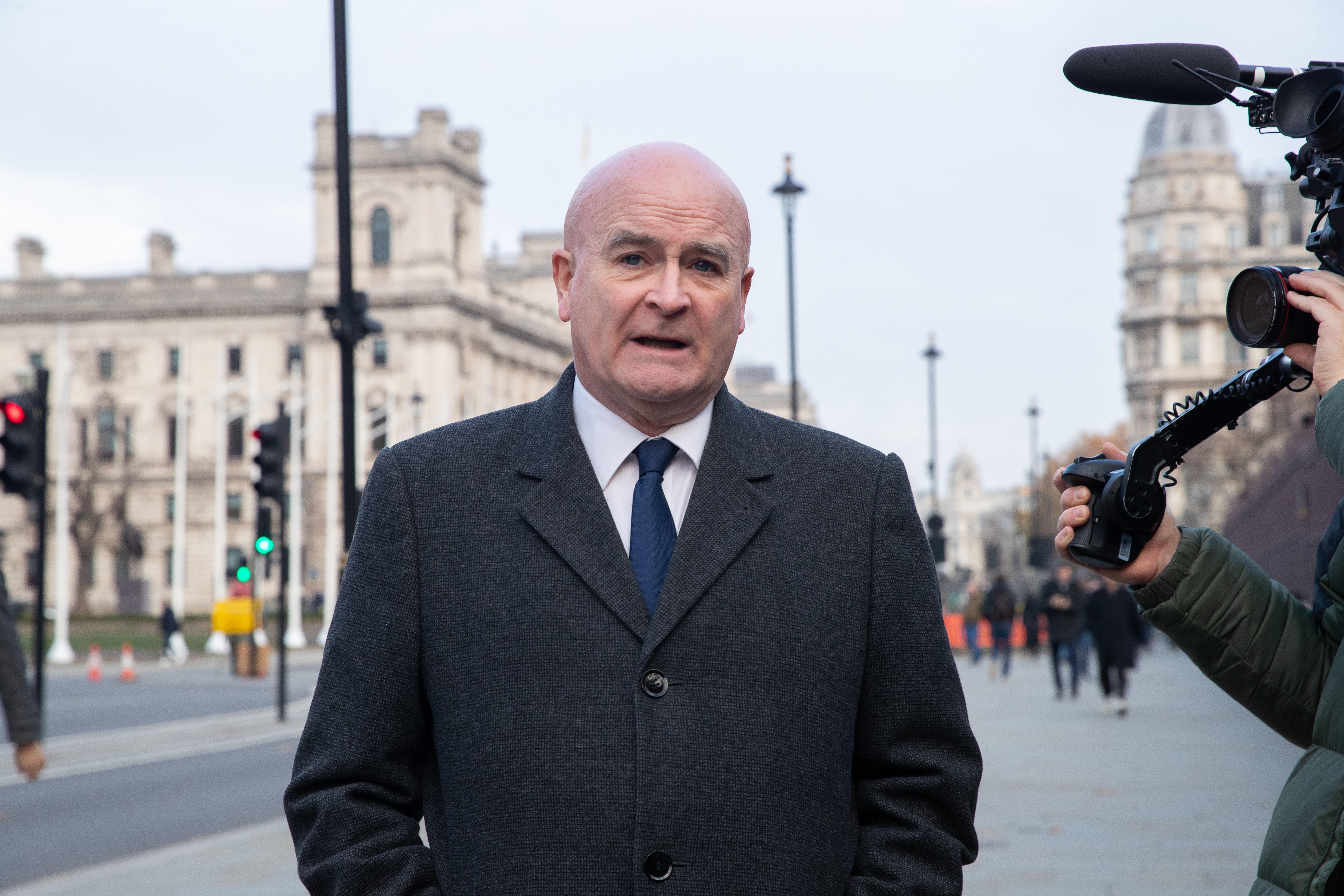Mick Lynch and the RMT risk becoming villains with the Christmas rail strikes
Stories of personal inconvenience caused by industrial action can turn people’s stomachs, in which case their opinions often follow, argues Sean O'Grady


If strikes were won and lost in the media then Mick Lynch and the RMT would by now be celebrating an inflation-busting pay rise and a general job well done.
Successive transport secretaries since the hapless Grant Shapps have been outplayed by Lynch like a South Korean defender faced with a goal-hungry Richarlison. Mark Harper, the current secretary of state is a former chief whip and knows a thing or two about the art of the possible, but even he has been outclassed. Those few Tory ministers, such as Chris Philp, brave enough to go head to head with Lynch in a TV studio has been publicly humiliated, and called “liar” to their faces.
However, the rail dispute has been a long one, and now, at such a sensitive time of year when people need to see loved ones, there’s a danger that the RMT will turn into the kind of villains the public love to hate. The extension of the industrial action to Christmas Eve is a sign that the union may risk drifting away from the kind of public support it needs to succeed. It would be quite the PR disaster if Lynch managed to make himself and his people even less popular than the train companies and the Tory government.
The Christmas Eve strike, on top of the other action, is something Lynch said would not happen – and people made travel plans accordingly. A fortnight ago Lynch declared that his members’ industrial action had been “deliberately” planned to avoid hitting this period when many people use the trains to visit family and friends. He told ITV’s Good Morning Britain: “We’ve deliberately left the Christmas period strike free.”
Now, Lynch is claiming that the action is designed to hit the usual holiday engineering works by Network Rail, but concedes that some passengers will be affected: “It’s a change of plan because the companies have changed their plans. They have decided that on 15 December that they will impose the changes to our members in the engineering function at Network Rail, that no matter what happens they will proceed with the changes that we have been attempting to negotiate with them, without our consent.”
As Lynch often notes, the railways are so controlled and funded by government that this is no routine private sector dispute – but that also makes it a deeply political matter. Tory ministers and MPs are weaker than they might be because they have lacked public support. Broadly speaking, public opinion is evenly divided, but that could change.
According to polling from YouGov for example, people tend to oppose the strike element of the RMT plan, with 47 per cent opposed and 41 per cent supporting. But the fieldwork was done and was little changed from the summer: a June poll found the public were against strikes by 45 per cent to 37 per cent. However, now feelings are moving against the union. The RMT action on Christmas Eve is opposed by 51 per cent, and approved by 37 per cent. Evidently, Lynch is turning into a Grinch.
Like nurses, ambulance drivers and postal workers may also find, it is more difficult to retain public support during the festive period, and stories of personal inconvenience, or worse, caused by industrial action can turn people’s stomachs, in which case their opinions often follow.
The last time we had this sort of scale of action across such a range of activities was in 1978-79, and the winter of discontent turned many people, including trade unionists, away from the cause. It contributed to the fall of the Labour government, the rise of Margaret Thatcher and more than a decade of successively more draconian laws to curtail union power and industrial action. It’s a lesson from history that Lynch and others would do well to heed.



Join our commenting forum
Join thought-provoking conversations, follow other Independent readers and see their replies
27Comments